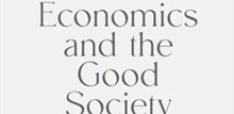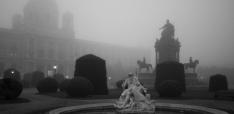Part Two: Ummah(s), Bangladesh and the Challenge to the West

In the second of this three-part series Mubashar Hasan explains how Islamists manipulate a religious concept to justify transnational terrorism, and to mount challenges to Western ideas of state and citizenship. Part-one can be read here.
The interesting aspect of the Bangladeshi case is that diverse actors of political Islam have pursued several kinds of Islamisation in Bangladesh. The ummah is conceived differently between different Muslim communities and is not a monolithic belief system. Consequently, Bangladesh provides a story of unity and disunity among Bangladeshi Muslims. In this context, ummahs (plural) refers to the different groups of Muslims forming cross-border political communities which differ from each other in terms of their operational patterns and political goals in Bangladesh.
For example, in my research, I found three different styles of Islamic politics (connected with three different political ummahs) in Bangladesh. These are: (a) the liberal ummah, formed by Muslim-majority states and political parties which seek subtle changes to electoral democracies’ legal frameworks and political discourses in Bangladesh; (b) the radical ummah, formed by transnational Islamist political parties such as Hizb-ut-Tahrir (HT) (now banned in Bangladesh) who openly challenge the idea of democracy; and (c) the extremist ummah, formed by transnational Muslim terrorist organizations that are prepared to resist Westernisation and secularism through violence (as we saw in the case of Dhaka attack). Despite a diverse narrative of ummah within ummah, a key aspect of this concept is that it mounts challenge to Western ideas and concepts by facilitating identity crises within Muslims and states with Muslim majorities.
Since the ummah taps into individual and group identities, the individual members of these ummahs can be termed as liberal, radical and extremist Muslims. While there may not be a fixed pattern to explain why individuals feel connected with these networks, it can be argued that these networks provide social scientists with a general pattern to deconstruct individual political preferences (as they do with any political party or ideological affiliation).
It should be noted that every political system contains a deeply embedded psychological element that explains the dominant political culture, practices and values of the system. One cannot explain the United States’ political system and culture without reference to republicanism and Western conceptions of freedom, capitalism and individualism. Similarly, Bangladesh political system cannot be explained without reference to Islam and the ummah.
According to a series of international surveys and reports, Bangladesh hosts a highly conservative Muslim society where an overwhelming number of people support the political role of Islam. In other words, Bangladeshis want their state, law and politics infused by Islamic values and culture. For example, over 98% of Bangladeshi Muslims in 2009 said in a Gallup poll that religion plays a very important role in their lives. A Pew survey in 2012 found that 71% of Bangladeshis displayed Quranic verses in their homes to highlight the importance of Islam in their lives. Another Pew Survey found that 82% of Bangladeshi Muslims favour making Sharia the official law of the country and 71% said they wanted religious judges deciding family and property disputes. Fifty percent of those Muslims who favoured Sharia also supported corporal punishment (such as whipping or cutting off the hands of thieves and robbers) whilst 55% supported stoning as punishments for adultery. Forty-four percent of those same Muslims favoured the death penalty for converts. Not all aspects of Bangladeshi law follow Sharia and ‘83% of Bangladeshis surveyed believed that not following Sharia law is a bad thing’.
The key to deciphering the ummah’s appeal is in its connection to personal religious values. These values vary greatly but all the individuals that hold Islamic identities tend form a critical mass that influences the broader political movements and structures of the state. The Islamic individual also has an international consciousness (as embodied in the ummah) and usually stands to protect abstract Islamic values and the role of Islam in their state (and even in other states). This makes the ‘Islamic individual’ stand in sharp contrast to the ‘liberal individual’.
Liberal individuals place an ‘emphasis on political pluralism as a sine qua non of political order’. This is clearly not the case in Bangladesh as a series of polls by Gallup and Pew emphasise. Liberals and traditional Western nationalists also emphasise ‘the sovereignty of the people’ as represented by parliaments and elected officials. Constitutionally speaking, Bangladesh proclaims itself to be a sovereign, independent republic run by, and for, Bangladeshi people. In practice, however, I found in my research that key politicians ideologically construct Bangladesh as a member of the ummah. Rather than viewing Bangladesh as an independent entity, Bangladesh’s main parties and electorate view it as belonging to a greater Islamic community formed upon the Ummah. This creates ideological pressures for the state to conform with and uphold Islamic values before temporal concerns. It is within this ideological construct of Bangladesh as a Muslim nation, within the ummah, that terrorism gains legitimacy in the minds of a handful of extremist youths. Extremists offer up an open challenge to the West and the Bangladeshi state because they are committed to greater Islamisation and are willing to uphold Islamism through violence.
However, a theological exploration to the concept of Ummah reveals that it has a much more complex meaning and there are scopes to argue that Ummah is a plural and inclusive concept. In part-three we will further explore this concept.
Mubashar Hasan, PhD, teaches at a university in Bangladesh. He can be reached at mhasan21981 [@] gmail.com
Photo credit: fazlay2012 via Foter.com / CC BY


